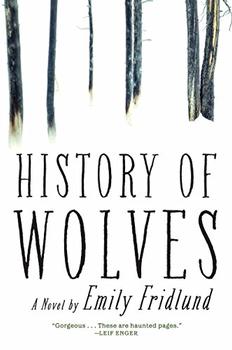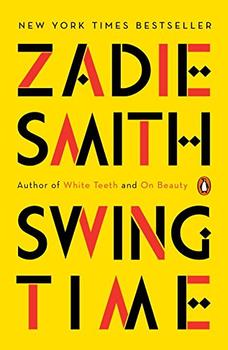Summary | Excerpt | Reviews | Beyond the book | Read-Alikes | Genres & Themes | Author Bio

Essays
by Sarah GerardSarah Gerard is the author of a novel, Binary Star, and currently teaches writing in New York City. However, she is from Florida, and the eight essays in her second book form a collective tribute to her native state and the ways her experiences there have shaped her.
The first piece, "BFF," is addressed to her childhood best friend, with whom she once had a very close connection. "You and I are cosmic twins," Gerard declares. Yet there was something volatile about this bond, described via a perfectly chosen Florida-specific metaphor: "Our friendship was a swamp full of cottonmouths." The class disparity between their families made a difference: the author escaped to college in New York, while her best friend stayed home and had a baby young. "You wilder. You freer. You louder," she portrays her friend, who also got caught up with drugs and abusive boyfriends.
There's a mixture of nostalgia and relief to the essay, a sense that this relationship had an expiration date and they're no longer in touch. "You haunt me in my everyday," Gerard writes, not least because the two girls got complementary tattoos: "Forever" on her friend's right hip and "& ever" on her left. A later essay, "Records," which chronicles the author's senior year of high school in a special arts program, ends with her having that friendship tattoo covered up with one of an elephant. The original tattoo and the one that altered it together make for a powerful symbol of a once-solid connection that later withered.
"Rabbit" is the other most personal essay in the book, and my overall favorite. It opens with the memory of Gerard's grandmother giving her a stuffed rabbit when she was eight years old, then dives into her grandparents' history: They met in 1945 at a Valentine's Day dance at a synagogue; for decades her grandmother served as the bookkeeper for her grandfather's industrial barrel business. His death from cancer and her grandmother's subsequent stroke were Gerard's first experiences with death and infirmity, and sparked a time of obsessive reading about death and grief. She also rediscovered The Velveteen Rabbit, with its message that you only become real when you are loved. She still has her grandmother's rabbit, a reminder of loving and being loved.
Four other pieces go into the backstory of various organizations Gerard and her family have been involved with. For instance, "Mother-Father God" is an account of her parents' connection with the "New Thought Movement" via Unity-Clearwater Church. Like Christian Science, which arose in the late nineteenth century, this sect denies the reality of illness and encourages positivity. "Doubt to me was equivalent to mortal sin," Gerard recalls, and even today she's a dogged optimist. The family left the church when Gerard was 12; when, at the close of the essay, they go back for a visit in 2015, she and her mother are both surprised at how cheesy the teaching feels, when once it had such a strong hold on them.
Often, Gerard moves from the personal to the general, first explaining what a certain movement means to her and then retreating into the past to provide its thorough history. So "Going Diamond" tracks her parents' involvement in Amway before talking about pyramid schemes and prosperity theology; "The Mayor of Williams Park" discusses feeding the homeless via a program started by an ex-con minister, exploring what led him to that point; and the title piece visits Suncoast Seabird Sanctuary (recently renamed Seaside Seabird Sanctuary; it's located in Indian Shores, FL) but also goes back to its beginnings in 1971 to reveal the contradictory motivations of the founder, Ralph Heath, Jr., who embezzled from the sanctuary and kept a personal collection of animals in unsanitary conditions.
I struggled to see the meaning of the short, final section, "Before: An Inventory," which delivers its scattered nature observations in italicized, shorthand notes. These fragments are, ironically, less effective at evoking natural beauty than the title piece, which contains this lovely passage: "Morning storms in Florida are a special kind of sign, a reminder that you're trespassing on Mother Nature's turf—that everything you know could be washed away in an instant."
Most of the essays are quite long, and it may be that readers will struggle to sustain their interest in some of the topics if they don't have a personal connection to match Gerard's. For that reason, I preferred the purely autobiographical pieces to the ones that draw on historical movements. In every case, though, Gerard delves deep into place and history to figure out how she became the person she is now. I recommend these essays to nonfiction readers who like to do the same in their own lives: look back to ask the big questions of where and how they got to where they are today.
![]() This review
first ran in the April 19, 2017
issue of BookBrowse Recommends.
This review
first ran in the April 19, 2017
issue of BookBrowse Recommends.

If you liked Sunshine State, try these:

by Emily Fridlund
Published 2017
Winner of the McGinnis-Ritchie award for its first chapter, Emily Fridlund's propulsive and gorgeously written History of Wolves introduces a new writer of enormous range and talent.

by Zadie Smith
Published 2017
An ambitious, exuberant new novel moving from North-West London to West Africa, from the multi-award-winning author of White Teeth and On Beauty.
Your guide toexceptional books
BookBrowse seeks out and recommends the best in contemporary fiction and nonfiction—books that not only engage and entertain but also deepen our understanding of ourselves and the world around us.